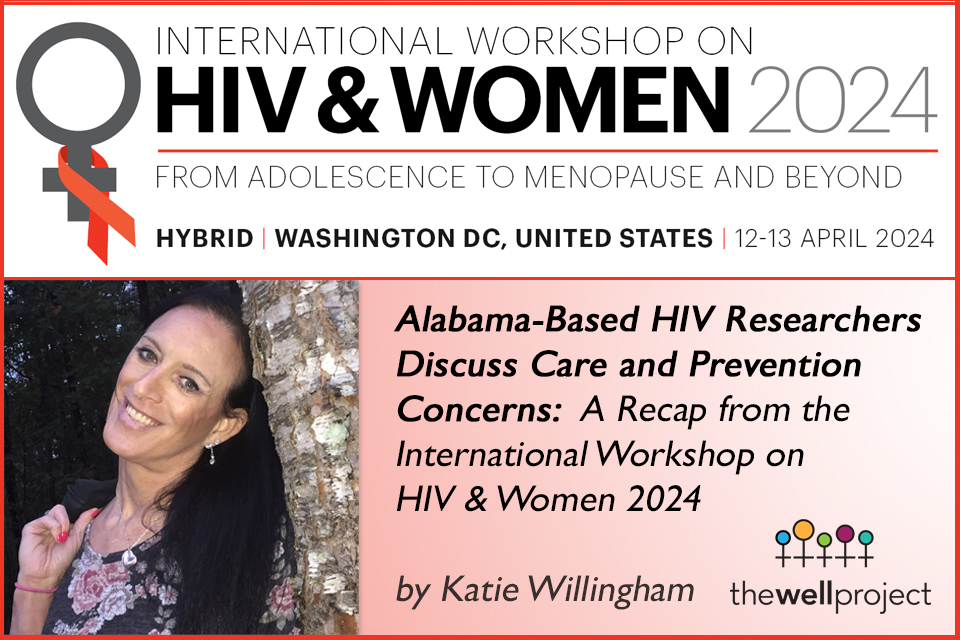
By Katie Willingham
Several members of The Well Project's team observed the April 2024 International Workshop on HIV & Women, from on the ground in Washington, DC, as well as virtually. Read on for this author's take on some of the information presented.
I was happy to see three doctors from my own home state of Alabama presenting during a session on Breaking the Barriers to Prevention and Treatment of HIV Among Women. The first to speak was Julie Schexnayder, DNP, PhD, MPH, from the University of Alabama at Birmingham (UAB), with a presentation titled "Avoiding Body Weight Bias in Healthcare for Women Living with HIV." She talked about a growing attention to obesity in HIV, how body weight bias is pervasive in healthcare, and outcomes associated with body weight bias. She talked about how this bias affects her work and challenges to research and care, and how healthcare providers can treat obesity while actively addressing weight stigma and eating disorder risk. After Dr. Schexnayder spoke, Amanda Willig, PhD, RD, another woman from UAB, offered a response to what she said.
The third woman from Alabama to speak, also from UAB, was Latesha Elopre, MD, MSPH. Dr. Elopre spoke about PrEP (pre-exposure prophylaxis) equity for Black women, highlighting disparities in HIV rates due to inequalities; the PrEP gap in which far fewer people in the US are taking PrEP than have been shown could benefit from it; barriers to PrEP uptake in cisgender women; and PrEP deserts in Alabama. I was rather shocked to learn that there had been recent HIV outbreaks in two Alabama counties, one of which is right next door to me. Dr. Elopre said she was working on something called PrEP for Her, where PrEP can be made available at gynecology clinics and primary care providers. I thought that was a great idea, because a lot of people don't want to be seen going to an HIV clinic because of the stigma, and so they never receive the services they need.
I was pleased to see these doctors from my state; I know we all share great concerns about Alabama. Healthcare in this state, like everything else, is governed by religious beliefs, and is often ignored or stigmatized. We desperately need comprehensive sex education in schools but can't get it because of restrictions by religious legislators; they only want to teach abstinence until marriage, which is an unrealistic expectation. Altogether, I enjoyed the session very much.
More from The Well Project on the International Workshop on HIV & Women 2024 (IWHW 2024)
- Debating the Role of HIV Treatment in Hypertension: A Recap from the International Workshop on HIV & Women 2024 by Katie Willingham
- HIV and Infant Feeding Around the World: A Recap from the International Workshop on HIV & Women 2024 by Olivia G. Ford
- The International Workshop on HIV and Women by Katie Willingham on A Girl Like Me
- Shedding Light on Menopause and HIV: A Recap from the International Workshop on HIV & Women 2024 by Katie Willingham




